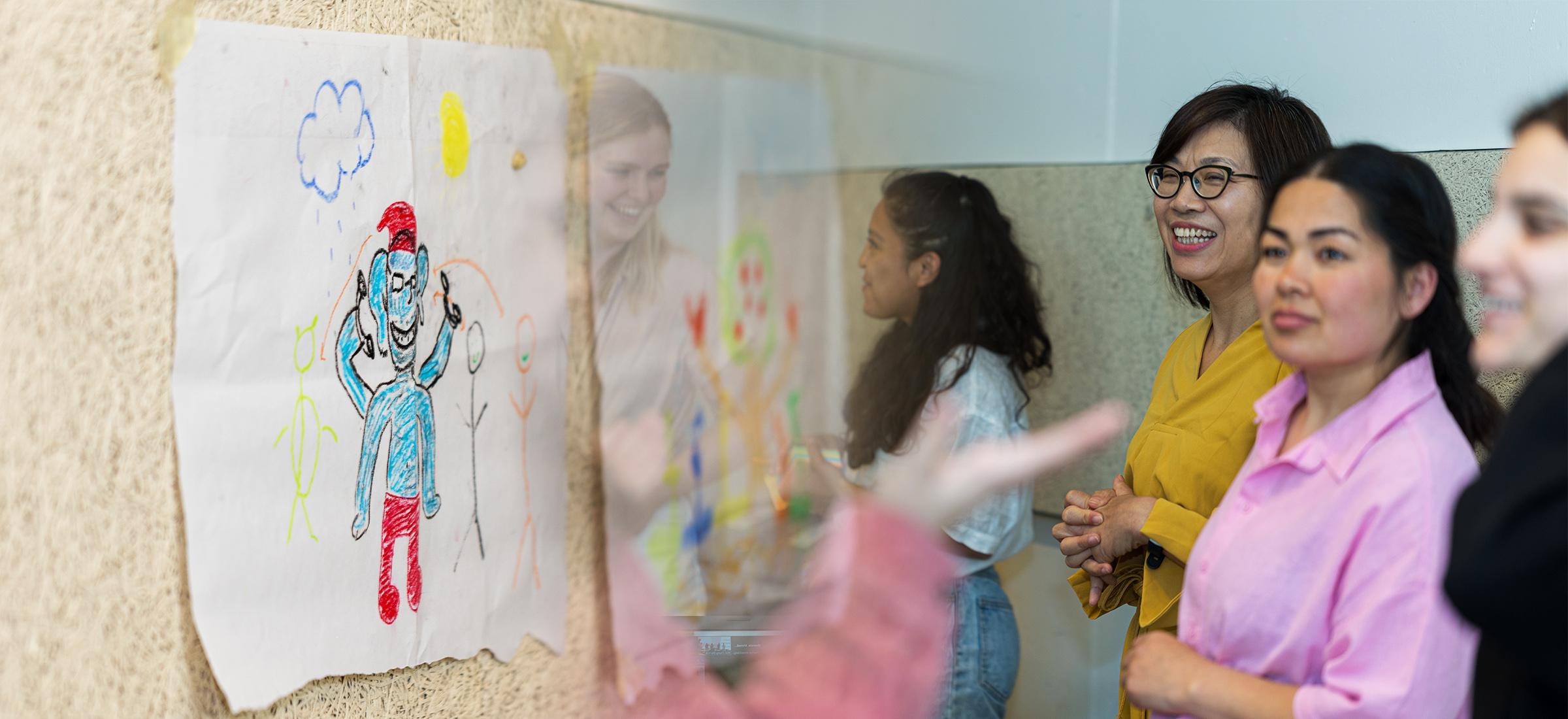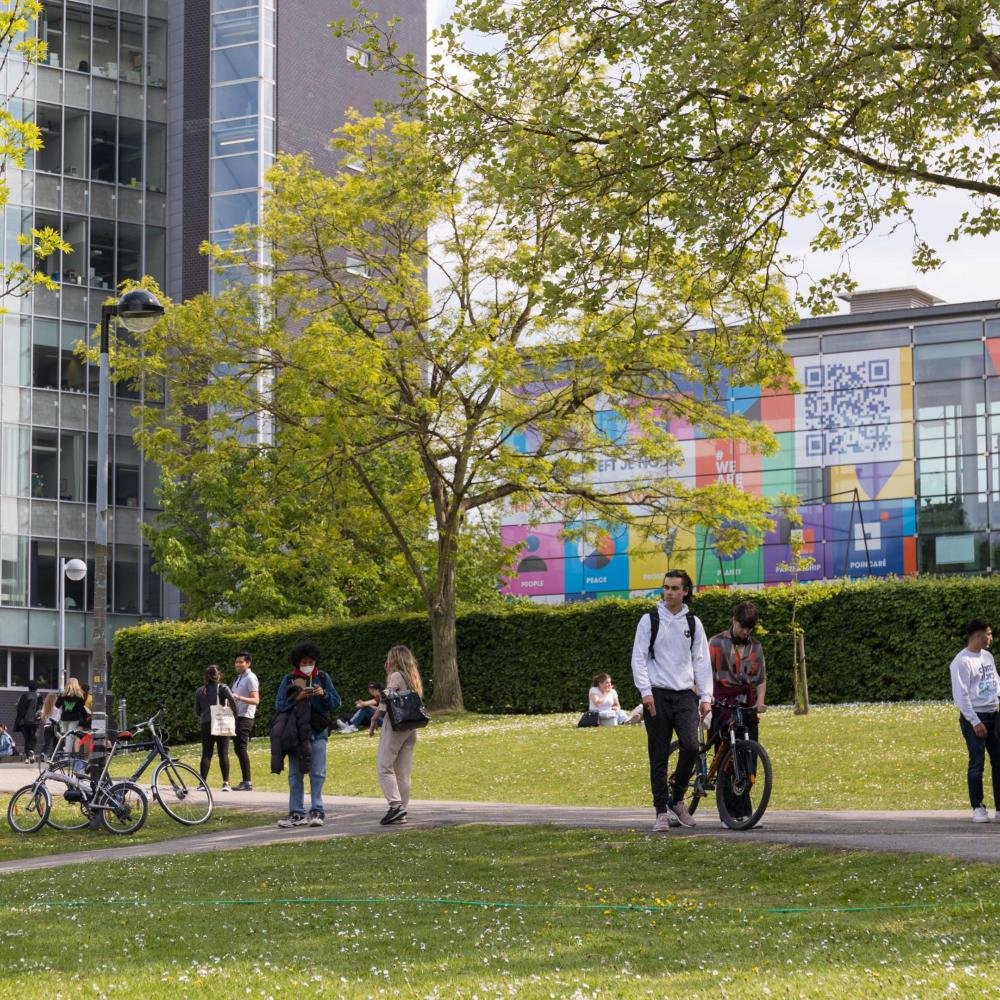
Is Educational Sciences for you?
Want to know if you are suited to the master in Educational Sciences programme? See the information and activities below to find out.
What does this programme involve?
In this master's programme, you will learn different theoretical insights and skills to analyse, assess, design, advise, guide and research contemporary learning environments. In addition, we pay extra attention to the design of innovative, didactic methodologies and policy based on self-regulating, digital learning environments. Your interest and insight into education, agogics and sociology of knowledge will come in handy here. Just like management of education, they form an important basis of the training.
Who better to tell you what this programme is like than the students who've participated?
- First-year student | Student
”We get plenty of possibilities to collect knowledge in a programme that embraces self-regulated learning. While we are free to manage our own time, we can always count on the enthusiasm and support of the lecturers. Moreover, they provide us with ongoing feedback and even welcome our input on the department's ongoing projects.”
Why study at the VUB?
Studying at VUB gives you more than a diploma. You learn to view the world with an open mind and without prejudice. You hone your critical thinking, and you learn to express your opinion. You commit not just to study, but to participate in meaningful social projects that make the world a better place. In short, this is where you shape your identity. Who you are today and want to be tomorrow.
Spread the study load
Create your own studypath
Within the VUB, we want to maximize our commitment to personal development and give as many students as possible the opportunity to continue their studies and develop themselves. Depending on your personal situation, it may be more difficult to devote full time to your studies. For example, you combine your studies with a job, you do top-level sports, ...
At VUB you study at your own pace. With a flexible study pathway you make room for your personal situation (elite sports, dyslexia, disability, etc.). More information?
Study and examination flexibility
Reflex status
Do you have a physical disability, learning disability or chronic illness, or are you starting a business or finding it harder to study because of your personal situation? If so, you qualify for Reflex Status.
With this you can ask for a flexible approach to your studies and exams, to maximise your chances of success. You may need access to course materials, for example, or more time to sit an exam, a translator or interpreter, staggered examinations, and so on.
Elite sports and studying
Elite sports and study
Keen to combine your elite sporting career with a programme at VUB? It makes sense, as it strengthens your position in the jobs market after your sporting career ends.
Our Elite Sports & Study department helps you work out a personal study pathway and guides you through to the end.
Studying with a disability
Studying with a functional impairment
Do you have a disability (for example, a learning disability, chronic medical condition, psychiatric or sensory disability)? If so, you qualify for a flexible approach to your studies and exams through Reflex Status, to maximise your chances of success. You may need access to course materials, for example, or more time to sit an exam, a translator or interpreter, staggered examinations, and so on.
Find out more about Reflex Status
For extra support there are other student services to draw on at VUB. For example, a wheelchair-adapted room, study guidance and a personal study-pathway, mental healthcare, medical care, etc.
Study Guidance
Study Guidance
An experienced team of student psychologists, student counsellors and study-pathway supervisors are there to give you personal study advice, guidance and training. At every phase in your study career.
- Individual - Advice on your choice of programme, stress and anxiety training, help with exam planning, help for students with dyslexia...
- Group (workshops, courses) - Choosing a subject for your bachelor's or master's thesis, learning to present, dealing with stress and anxiety...
- Tools - An example of good weekly planning, tips and tricks for a good study method, a step plan to help you choose the right programme...
Combining your studies with a job
The Master in Educational Sciences is a daytime only programme.Therefore, there is no option to combine this study with a fulltime job.
Studying abroad
Want to study abroad for a semester during your master's programme in educational sciences? Among the places where you can study are Finland and Sweden, which are both known for their innovative approaches to education. You can also opt for an internship or thesis research at home or abroad.
